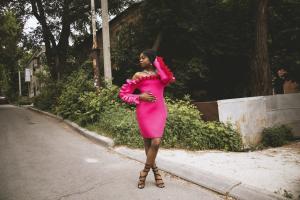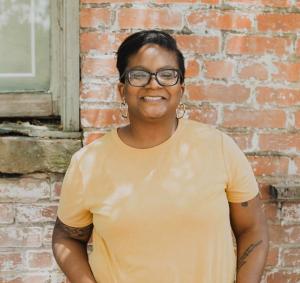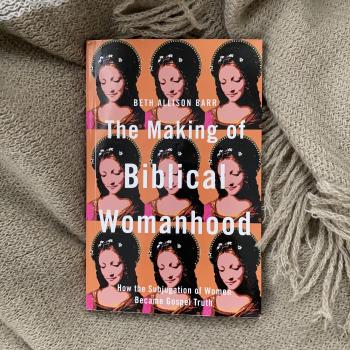
As my series of guest posts continues, please welcome Christian Williams. Christian earned her ThM, with an emphasis in Spiritual Formation, from Dallas Theological Seminary and currently serves on staff at Christ Community Church in Fayetteville, Arkansas, as the Director of Women’s Discipleship. Christian is passionate about equipping women to own their place within the body of Christ through rootedness in Scripture, intentional relationships that sharpen us as image-bearers, and service to the church and to the city. She also lives for storytelling—from the meta-narrative of Scripture to others’ life stories, to writing everything down her own imagination provides. She enjoys music, films, the outdoors, and laughter.
“Girls don’t sit with their legs open,” my mother would say to me. I would dutifully close or cross my legs at the correction. At the time, as a child, it never could have occurred to me that I was being taught a sexualized posturing towards sitting. But as I grew, it became more and more evident to me that as a woman I was hardly thought of as embodied even though there was, and still is, a weighted conversation on the female form. I am sure I am not the only woman who grew up being corrected on how to sit lest we send the wrong message about ourselves.

I grew up and lived in a world where personality tropes and traits were assigned to women based upon how they look: “Blondes have more fun” or, regarding redheads, “Does the carpet match the drapes”—a world where women still have to decide if being referred to as “thick” is a compliment or an insult or just the result of living in a world obsessed with a woman’s weight. In this world, we compare a woman’s physical frame to food and objects—pear-shaped, hourglass, apple-shaped. It’s also a world where we expect women to “bounce back” after giving birth to an entire human. In this world where we feel the need to aesthetically perform for the male gaze, for the female gaze, for the Christian gaze, for the culture’s gaze, it is no wonder that women struggle with their relationship with their body.
According to the National Eating Disorder Association, body image is defined as “How you see yourself when you look in the mirror or when you picture yourself in your mind. It encompasses: What you believe about your own appearance (including your memories, assumptions, and generalizations). How you feel about your body, including your height, shape, and weight. How you sense and control your body as you move. How you physically experience or feel in your body.” However, as a believer united to Christ, I feel as if it needs to be stated that our body image needs, like everything else, to be rooted in the gospel. Instead of correcting me on how to sit, someone should have been telling me:
(1) That I am made in the image of God
(2) The great hope of the Christian faith is a bodily resurrection
(3) Those two things inform how I bodily move in the world—not what I look like or want to look like.

And as such, we as the church should be concerned with what we’re teaching women about the worth of their bodies and how they take up place and space. Simply put, the gospel addresses not how a woman should sit or simply how a woman should adorn herself but rather the intrinsic value of a woman. It should dictate how a woman views and perceives her body and how the church views and perceives her body. Often, the female form has been regulated to, “Which Mary are you? The Virgin or the Prostitute?” instead of honored as carefully crafted from the rib of a man and presented by God as the completing half to humanity.
We live in a time and place where “Beauty Influencer” is a job title. We live in a time and place where Kourtney Kardashian brought a ring light to the DMV for her driver’s license photo because we all know now that lighting and angles do everything for a filtered picture. But where is the church? Where is the church to tell women that you should love and care for your body because God has intentionally crafted you as an individual human that speaks of who He is and not for pictures or affirmation or acceptance or to hold a man’s affections?
As David says in Psalm 139, God has knitted us in our mother’s womb; we are “fearfully and wonderfully made.”












